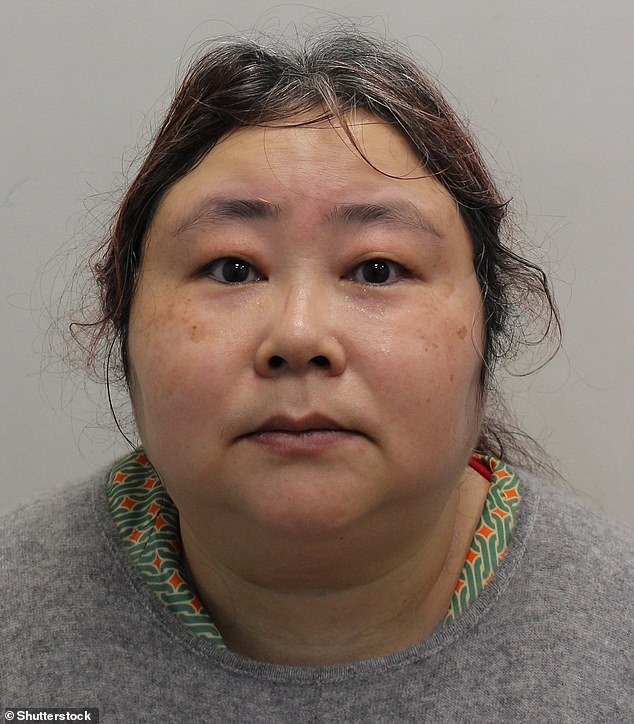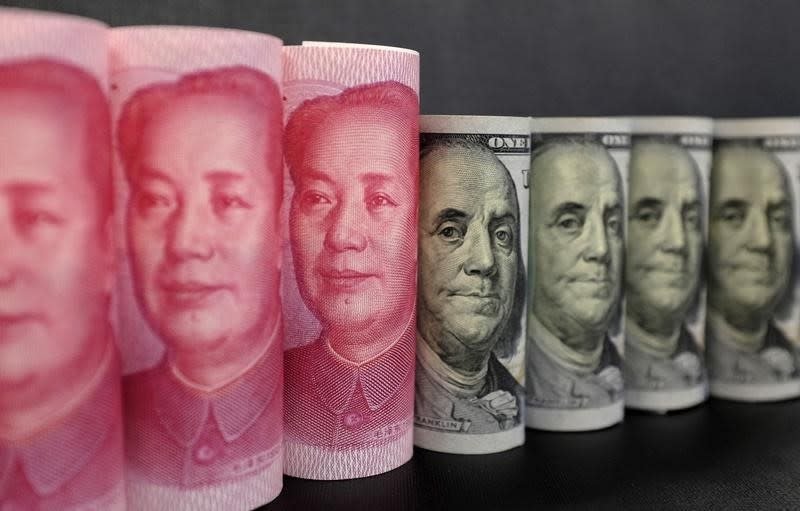A ‘BitQueen’ behind a £5.1billion Chinese investment fraud has given police access to a further £67million worth of cryptocurrency contained on a secret device hidden in her jogging bottoms.
Prosecutors announced yesterday that the seized digital currency would be used to fund a compensation scheme for 128,000 Chinese investors conned between 2014 and 2017.
Zhimin Qian, also known as Yadi Zhang, has agreed to give up all her Bitcoin after pleading guilty last month to possessing and transferring criminal property on the first day of her trial at Southwark Crown Court.
The first £5.1 billion of Bitcoin was seized after police raids on her six-bedroom rented house near Hampstead Heath, north London, in 2018 – prompting a battle between Britain and China over where it should end up.
During interviews in prison with prosecutors and police last month, Qian finally gave access codes for another device alongside passwords for two digital wallets containing £67million of Bitcoin and another cryptocurrency, Ripple.
The stash has been added to the original £5bn Bitcoin hoard, which Chancellor Rachel Reeves has reportedly earmarked to help plug the hole in the public finances.
However, Stephen Parkinson, the director of public prosecutions, is establishing a compensation scheme for the victims.

Zhimin Qian, also known as Yadi Zhang, has admitted charges of possessing and transferring criminal property

Qian’s assistant Jian Wen (pictured) was convicted of money laundering
It is not clear whether they will receive solely their initial investment, or a sum that takes into account the massive increase in Bitcoin’s value since they made their investments.
One Bitcoin was worth around £750 at the start of 2017, when Qian’s fraud was exposed, to a record £94,000 this month.
William Glover, from the law firm Fieldfisher, told the Times: ‘Some lost their life savings and many of them are elderly or vulnerable. The victims have been without their property for some ten years now and are entitled to recover their property from the Bitcoin frozen in this jurisdiction.
‘The frozen Bitcoin does not belong to the UK state. The UK state does not have the right to freely dispose of the frozen Bitcoin over victims’ legitimate legal and proprietary interests.’
The CPS last year published a ‘notice to the victims of the Lantian Gerui fraud’.
The notice said it had made a property freezing order on December 18, 2023, under the proceeds of crime act ‘and will remain in force, prohibiting the dissipation of the property, until the conclusion of the civil recovery proceedings or until further order of the High Court’.
Qian’s fraud tricked Chinese investors into ploughing their money into fraudulent wealth schemes before it was transferred over into Bitcoin.
She then fled China using false documents and entered the UK, where in September 2018 she attempted to launder the proceeds via purchasing property, with the help of an assistant, Jian Wen.

The first £5.1billion of bitcoin was seized during a raid on Qian’s Hampstead mansion

Police during the police raid on Qian’s home in Hampstead
The Met did not realise the devices they had seized contained Bitcoin until 2021, by which point Qian had vanished. It is thought to be the largest law enforcement Bitcoin seizure ever.
She was not charged until April 2024 after she was arrested in York.
Qian emerged from relative obscurity to run a Chinese company called Tianjin Lantian Gerui Electronic Technology, launched in March 2014.
The firm sold investment products with promised returns of up to 300 per cent. In reality, she was simply funnelling her investors’ money into Bitcoin for her own enrichment.
Will Lyne, The Met’s Head of Economic and Cybercrime Command, said officers were able to gather evidence with the assistance of police in China.
‘We were able to obtain compelling evidence of the criminal origins of the cryptoassets Qian attempted to launder in the UK,’ he said.
‘My thoughts are with the thousands of victims defrauded in this scheme, and I hope today’s outcome acknowledges the harm Qian inflicted and reinforces the Met’s unwavering commitment to justice.’
Wen was convicted of money laundering and jailed for six years in 2014.







